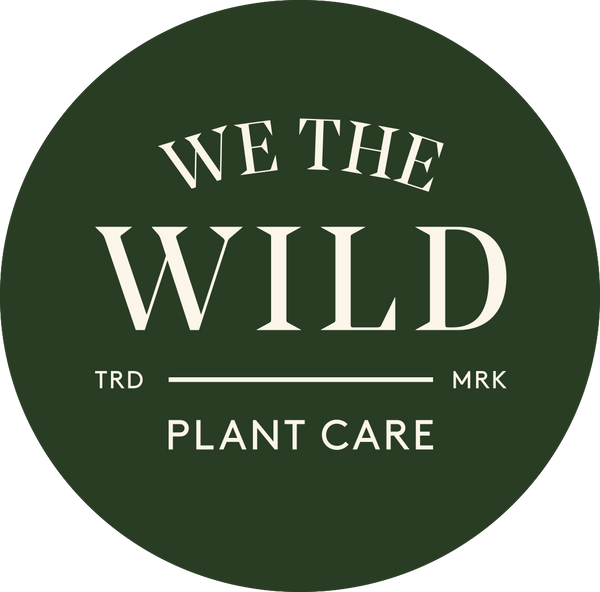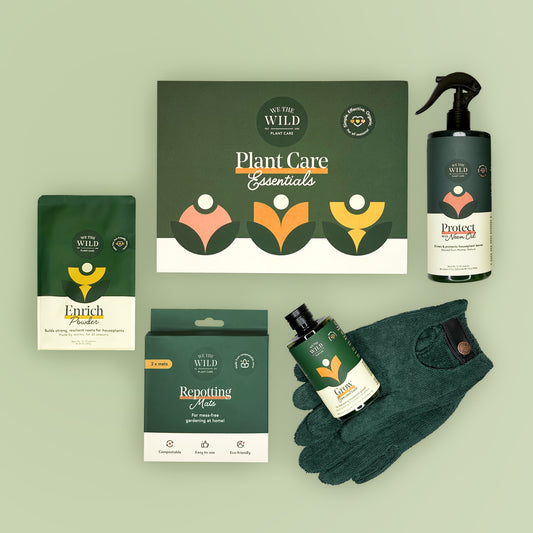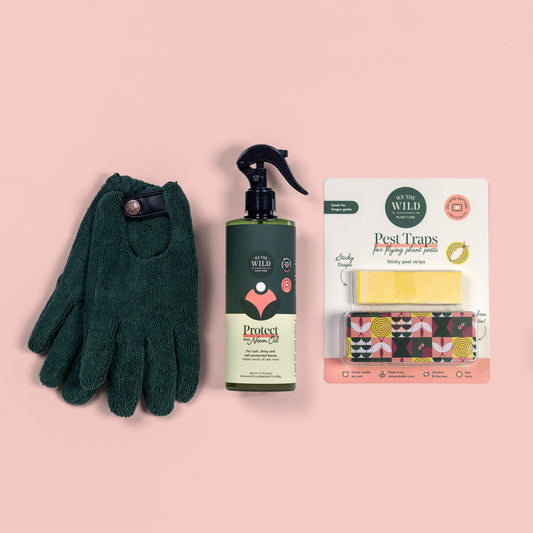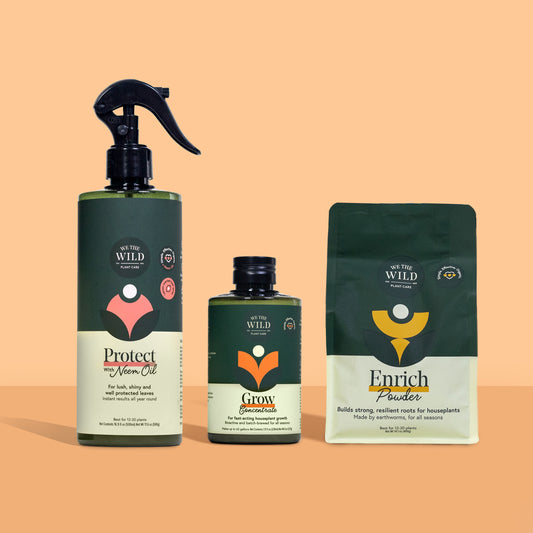Have you ever thought about using snow ? That pure, white powder looks so tempting. We were curious to see the effect of sprinkling it on our houseplants, and asked ourselves "can we use snow to water our plants?"
Luckily, the lab at We the Wild had some answers! Firstly, it's important to remember that snow is just frozen water, right!? Well, yes and no. When the snow melts, it turns into water similar to rainwater. That means that it doesn't have any of that yucky chlorine or other chemicals often found in tap water. The benefit? It's pretty gentle for your plants.
The problem comes with the quality of the snow - it definitely matters. If we're talking about fresh snow that has been collected in a pure form, and is untouched by nasties like road salt or other muck, it can be great idea to use it to water your houseplants. But if it’s dirty or has been sitting on the ground for days, you might want to steer clear.
How to Use Snow To Water Your Houseplants
Here’s how to turn that fluffy snow into plant-friendly hydration:
-
Collect Snow Carefully
Stick to fresh, white snow - and skin off the top layer of powder when you can. It's best to look outside of snow near roads, sidewalks, or driveways. Mainly, because it can contain harmful salt and chemicals. -
Let The Snow Melt
It is so tempting to dump a nice pile of snow on the soil and let it melt, but avoid that! The ice can shock your plant's roots and kill some of the beneficial microbes living in the soil. Instead, let the snow melt in a room-temperature container. Bonus: melted snow water is already at a nice, cool-but-not-cold temperature for your plants. -
Water Your Plants Like Normal
Once the snow has melted, use it to water your plants as you normally would. Check that the soil is dry to the touch before watering, as overwatering is a common beginner mistake.
The Pros and Cons of Using Snow To Water Houseplants
Pros:
- Eco-Friendly: Using snow is a sustainable way to water your plants, especially if you’re already shoveling it!
- Free of Chemicals: Snow is naturally free of chlorine and fluoride, making it gentler for sensitive houseplants.
- Saves on Tap Water: If you’re conscious of water usage, snow can be a great alternative.
Cons:
- Potential Salt and Pollution: Snow from urban areas might have some harmful nasties.
- Temperature Shock Risk: If you don’t melt the snow first, the freezing temperature can damage your plants’ roots.
- Only Available In Winter: unless you're literally bottling snow for year-round use, its only available when your plants need the least water.
What Houseplants Love Melted Snow Water?
Most houseplants will thrive with melted snow water, but some sensitive plants—like calatheas or ferns—might really benefit from its gentleness. These plants can sometimes react poorly to tap water’s chemicals, so snow is a great alternative.





